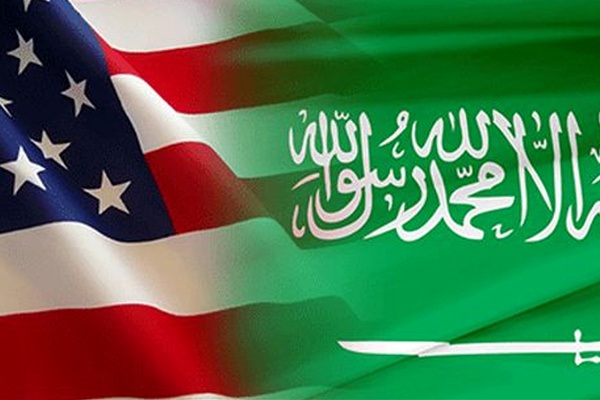US and Saudi Arabia: Transitory hostilities and perpetual alliance
Mohammad Bin Salman, the Saudi ambitious war minister and deputy crown prince in his recent visit to Washington, D.C. called for further expansion of USA-Saudi ties in military and economic fields, but one can raise a simple question: why Saudi regime is completely exempted from American newly elected president’s Islamophobic agenda embodied in “Muslim ban”, the order which bars citizens of seven Muslim-majority countries from entering the US.
In order to answer this question we must delve deep into Middle-East’s contemporary history. By 1930s and 40s, the Saudi royal family found American oil companies more amiable and trustworthy than their British ‘colonist’ counterparts as they were only interested in safeguarding their own financial activities but the story was different with Americans. Middle East is abundantly endowed with oil and soon after World War II, Securing Saudi and Iranian oil wells, flow of cheap oil into booming western industries and denying USSR from Persian Gulf’s warm waters were cornerstone of U.S. Middle East policy, thus 1953 coup orchestrated by CIA against the democratically-elected Prime Minister of Iran Mossadegh can be understood in that context.
During the Cold War, the Saudi regime demonstrated its inherent ability to protect US hegemony in the Middle-East region and this political servitude reached its peak in the two-column strategy of Nixon whereby Iran’s dictator monarch was assigned to protect US interests militarily and Saudi affluent regime to finance the entire policy.
In the early 1980s with the Soviet occupation of Afghanistan, CIA worked in close co-operation with Pakistan’s notorious Inter-Services Intelligence (ISI), recruiting radical terrorists from all over the world and sending them into Afghanistan through the mainly tribal porous borders and it was Saudi regime or Saudi citizens that paid for all these sinister operations.
During Reagan’s administration, US intelligence community was oblivious to the imminent threat which Saudi radical terrorists were posing or at least condoning the Saudi official involvement. The 9/11 attacks forced the President Bush Jr to make American public opinion to believe Washington won’t anymore tolerate the tyrannical regimes and the Arab States sponsoring terrorism, namely KSA, which US of course wowed to protect. Unbeknownst to American people, the Saudi veteran diplomat and Ambassador Prince Bandar bin Sultan was Bush’s senior advisor during 2003 invasion of Iraq and its ultimate destruction.
Barack Obama’s victory in 2008 presidential election sent this ominous signal to the Saudi regime that due to the deteriorating economic situation in America, Washington cannot afford to guard the Saudi king’s fragile glass castles and they should peddle his own canoe. Hence Riyadh began acting inanely in the Middle-East volatile region. The Sheikhs used iron fist strategy and extreme brutality to silence their domestic opposition, waged a bloody war on Yemen, prolonged its military occupation of neighboring Bahrain and executed a Shiite prominent cleric Nimr al-Nimr and sending brain-washed terrorists to Iraq to stage suicide attacks against civilians more than ever.
It was the advent of ISIS, a horrible nightmare , that made the Saudis to exert all their financial and media influence to falsely depict the situation in the terror-stricken Iraq as an ethnic war between the Muslim themselves. However, Iran as the sole guardian of peace and stability ruined the Saudi satanic plans. In spite of Trump’s farce threats and election promises which Saudi Arabia must pay every penny of US military support, these days we are witnessing the fact that Trump’s administration needs Saudi money in order to lick America’s endless wounds and therefore Trump might give the despicable Saudis green light to shoulder the US interfering role in the Middle-East

